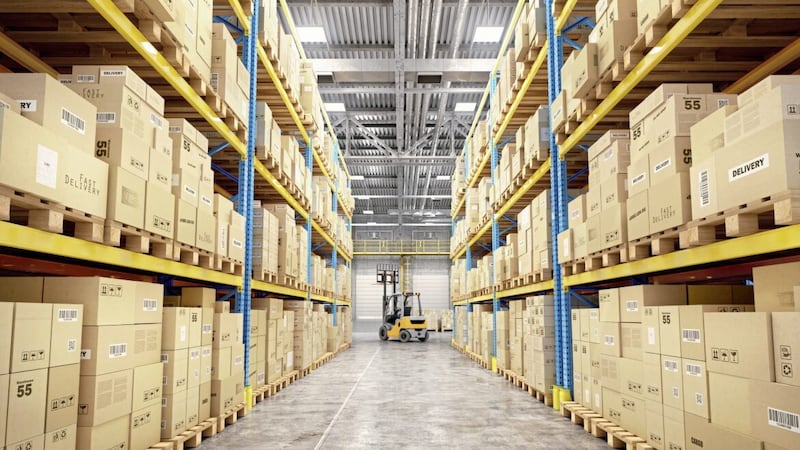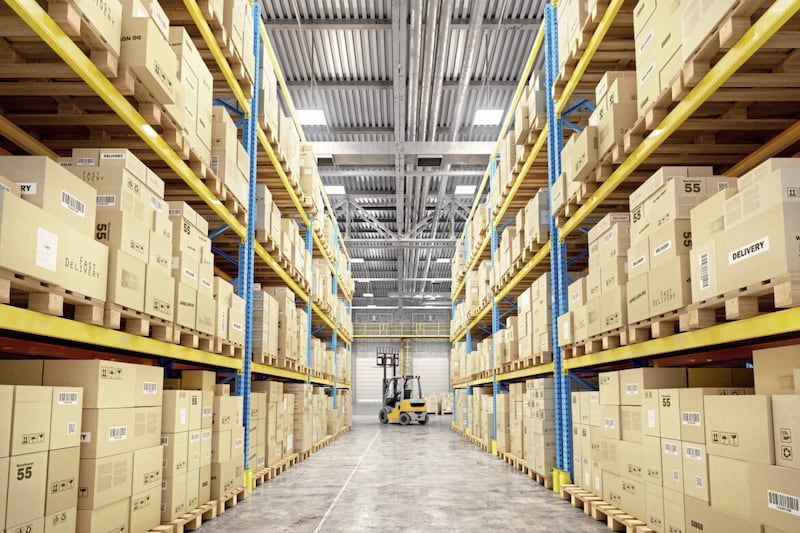LAST week saw the launch of a new report from Barclays Corporate Banking which revealed that goods with a total value of over £1.2 billion are awaiting completion in Northern Ireland manufacturers’ warehouses because of supply chain delays.
The ‘Chain Reaction’ study looks at the impact of supply chain issues on manufacturing businesses across the UK. Given our island location and all the associated issues of borders, transport and logistics faced in Northern Ireland, we took a close look at the report’s findings to see how these global supply chain challenges are impacting the local economy.
Clearly, these ‘chain reactions’ are giving businesses here a major headache. The report shows that over 90 per cent of Northern Ireland manufacturing businesses are currently holding items in their warehouses awaiting completion because raw materials, ingredients or component parts have not yet been delivered from suppliers. On average, this ‘unfinished business’ is worth over £1.2m to each company impacted. All told, it is estimated that the total value to Northern Ireland business is over £1.2bn.
Looking at the UK as a whole, the report reveals that products in the steel and metals sector are most severely affected, with £9bn worth of goods incomplete – equivalent to almost a fifth of this sub-sector’s annual UK turnover. The most affected consumer goods sector is food and drink, with delays in sourcing ingredients causing a £3bn backlog.
As both of these sub-sectors play a significant part in Northern Ireland’s economy, this is a hefty pinch-point for local firms. UK-wide, a high value of plastic products (£2.6bn) and electronics (£2bn) are also awaiting completion.
The trends are reflective of supply chain disruption that has challenged the manufacturing sector since the pandemic, and more than six in ten (62 per cent) Northern Ireland firms say they are still facing supply issues.
Customer relationships are now being impacted: over half (58 per cent) of Northern Ireland manufacturers say their customers are having to wait longer for products, with 16 per cent describing the hold-ups as ‘significant’. To offset rising costs such as energy and transportation, two thirds (66 per cent) of manufacturers are planning price increases for their own products, of 33 per cent on average.
Of course, not only do these blockages present challenges to both the production process and to customers’ expectations, but they can also give rise to financial pressures. To maintain cashflow and liquidity, over half (52 per cent) of Northern Ireland manufacturing firms are optimising their working capital cycles and 44 per cent are accessing additional bank funding. This is in line with what we are seeing across our local customer base – larger holdings of more valuable stock are driving higher funding requirements.
We know our manufacturing sector is a resilient and innovative one, continually evolving solutions as new challenges arise. To meet the current supply chain issues, Northern Ireland businesses are increasing their storage capacity to prepare for the fact that raw materials are taking longer to source; nearly four in ten (39 per cent) are “near shoring” to move their supply chains closer to home, and 29 per cent have brought elements of their supply chain in house. Around a third (32 per cent) have increased the number of different suppliers they work with in order to spread their risk.
Such measures are leaving the industry confident in the medium-term. Nearly six in ten (58 per cent) Northern Ireland companies think supply chain challenges will improve over the next six months and 80 per cent are confident about growth next year.
For additional context, we gained a valuable insight into the health of our manufacturing sector, and in particular the importance of exports, through the latest NISRA figures reported last week by the Irish News. These show that the north's external sales, which consist of international exports and sales to GB, were over £25bn in 2021, with almost £13bn to GB and £5.2bn to the Republic.
The NISRA numbers state that the manufacturing sector accounted for 55 per cent of all export sales and the statistics showed ten year growth of 21.5 per cent, even in spite of recent political and economic challenges.
There is no doubt that the sector has faced a perfect storm of challenges, with rising costs, the war in Ukraine, labour shortages and ongoing Covid lockdowns in China hitting supply chains hard. With over a billion pounds worth of goods trapped in Northern Ireland warehouses unfinished, we might expect to see the impact of this on turnover in 2023.
However, one of the most impressive things about our manufacturing firms is their ability to engineer new solutions to limit the impact of the issues they face. Thanks to this adaptability and their resulting resilience, it is pleasing to see both industry optimism and a positive long term growth trend, which should give confidence going into the new year.
:: John Mathers is corporate development director at Barclays Corporate Banking in Northern Ireland.








